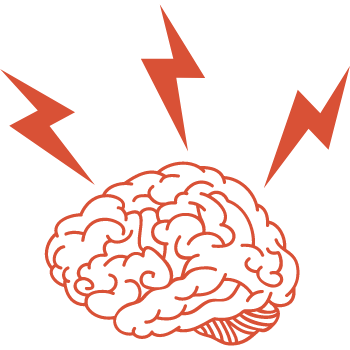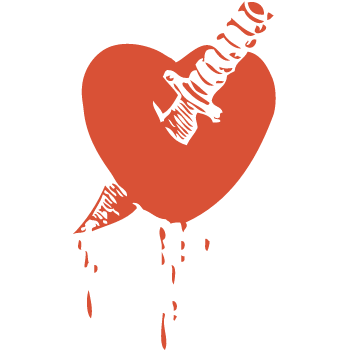Being “dramatic” doesn’t mean you’re not in real pain. Here’s how to process the question, “Am I depressed or just dramatic?”
I’ve been not okay for a lot of my life.
Which is weird, because my life is honestly pretty great. And it always has been.
I was raised in a solidly middle-class home with two dedicated parents and three (seriously) delightful siblings. (I mean, sometimes they ate the last Pop-Tart, but that’s life.) We never worried about having food in the pantry or a roof over our heads or a car that wouldn’t start.
I almost feel guilty acknowledging all that privilege.
So what was wrong with me? What is wrong with me?

Maybe you have the same questions. What’s wrong with you? With your kid? What’s wrong with your partner, your parent, your friend, your co-worker?
And what are any of us supposed to do when everything is relatively “great,” but we are still, somehow, seriously NOT okay?
Am I depressed or just dramatic?
I’ve wondered this more than once. Sometimes more than once a day, in fact. The self-doubt blooms like mold on a ceiling.
Do I really have a migraine? Is math really super-hard? Am I incapable of NOT crying myself to sleep every night? Is cleaning the bathroom truly ultra-gross?
Or am I just being dramatic?
When I was 14-ish, my neurologist had me take a psychological exam.
I’d been seeing him for migraine headaches, but for whatever reason, he thought my mental health could use a review.
The test was one of those “Yes/No/Sometimes” quizzes, and I filled it out myself. I was flummoxed by questions like, “Have you ever experienced pain that made sleep difficult?” Have I EVER? Well, sure…
So I answered each question with brutal introspection, and the doctor determined that I was “extremely sensitive” and perhaps a bit, um… “dramatic.”
If you’ve ever been called “dramatic,” you know exactly how insulting it is—even if you are, in fact, being deeply dramatic.
Wrap “depression” and “drama” into a single sentence, and it’s the idea that some of us wear our mental illness like a costume: that we don it and twirl around in it, selfishly showing it off as proof of our pain.
But what if the colleague who loudly announces their illness is simply telling you, “I’m still not okay.”
What if the friend who cries at TV commercials is letting you know, “I am still not okay.”
What if the medicated kid who’s still sulking and sighing after months of therapy isn’t being dramatic. They aren’t selling tickets to their latest theatrical production.
They are telling you: I am still not okay.

I have been called “dramatic” about many things, but I know, in that place of knowing we all carry deep inside us, that “drama” is my most desperate means of self-expression. It is a cry for help, a plea that someone see and hear me—
because my anxious, ADHD brain so often tells me that I am not seen or heard.
For many of us, ironically, “drama” is a demand that we be believed.
“I’m having a really hard day.”
This is what I tell my husband when anxiety breaks through my medication and I’m feeling flawed and fragile.
The sheer ability to say this out loud is proof of how much I’ve grown.
He tends to respond with encouragement, which somehow accomplishes the exact opposite. “It’s ok; tomorrow will be better,” sounds to me like, “You’re fine. Get over it.”
I was 39 before I learned to say, “I need you to give me a hug and ask me what’s wrong,” or, “I need to cry on your shoulder for a minute,” or “Can you make me a grilled cheese sandwich?”
It’s rarely innate to ask for what our heart needs. But it’s undeniably necessary if we want to find our way in the world.
“Am I depressed or just being dramatic?”
What if the answer is, “Both”?
Is it okay for someone to crave attention as comfort?
Can we learn to hear the different words people use to say, “I need more medicine; I need more therapy; I need more help”?
As I’ve embraced my own neurodivergence and given grace to my sensitive soul, I’ve begun to believe that drama is in the eye of the beholder. One person’s noise is another person’s music. What one sees as unnecessarily theatrical is experienced by another as freedom, at last.
And if time heals all wounds, then seemingly irrational dramatics should soften with the years.
But if they don’t?
Be patient with me. Today, I am not okay.
If you need extra support today, call 1-800-662-HELP. The Substance Abuse & Mental Health Services Administration hotline is free, confidential, and available 24 hours a day, 365 day a year.
Cover photo by I Am Nah
